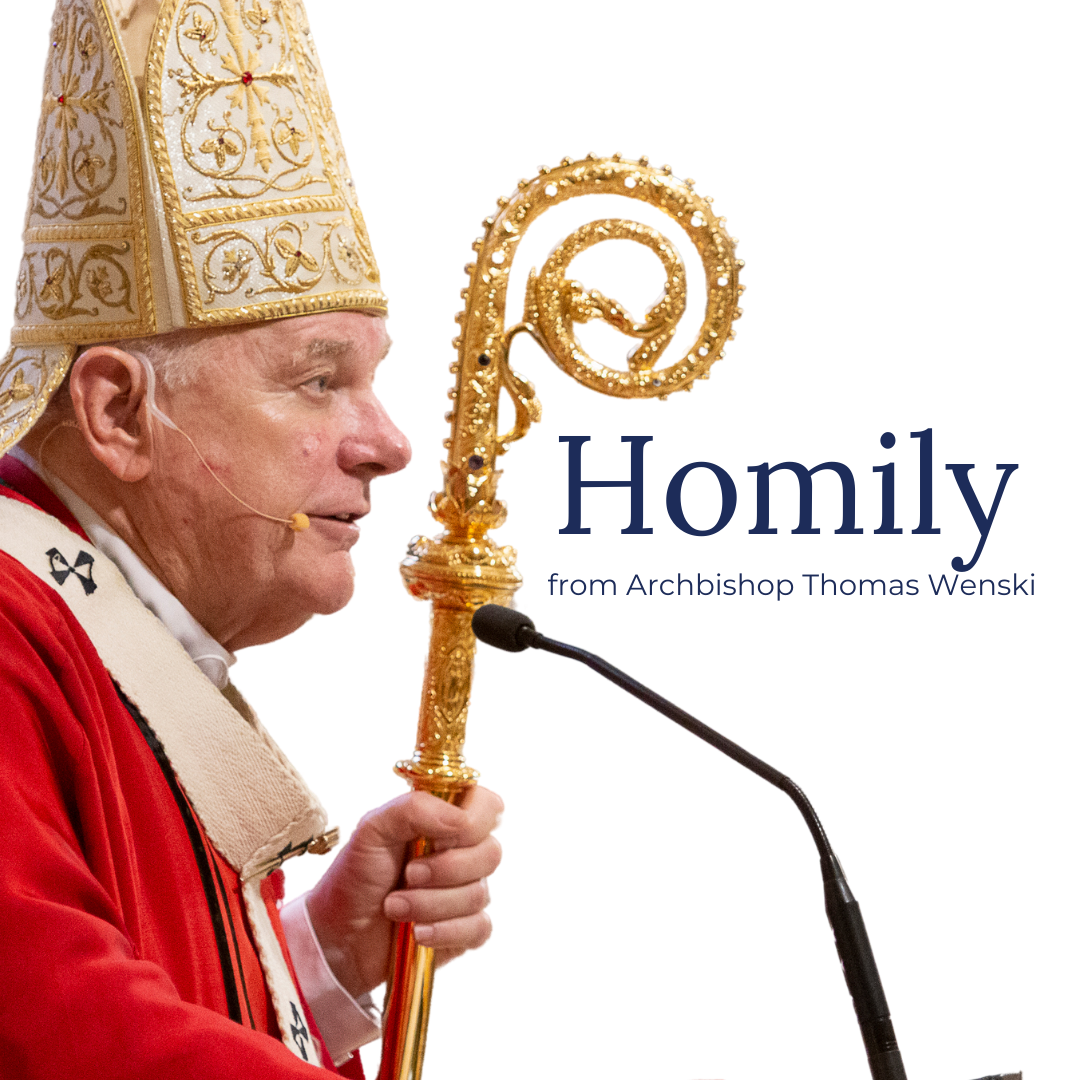By Archbishop Thomas Wenski - The Archdiocese of Miami
Archbishop Thomas Wenski preached this homily July 22, 2025, on the Feast of Saint Mary Magdalen at Saint Mary Magdalen Catholic Parish in Sunny Isles Beach.
I thank Father Galves for inviting me to celebrate this Mass with you on your parish’s patron saint’s day.
María Magdalena, su patrona, es conocida como la «apóstol de los apóstoles» porque un apóstol es alguien enviado, y María Magdalena, el Domingo de Pascua, fue enviada por el Señor para dar a los apóstoles la buena noticia de su Resurrección. «He visto al Señor», les dice.
Mary Magdalen, your patroness, is known as the “apostle to the apostles” because an apostle is one who is sent and Mary Magdalen on Easter Sunday was sent by the Lord to give to the apostles the good news of his Resurrection. “I have seen the Lord,” she tells them.
In the gospels, only the Blessed Mother is the woman mentioned more than Mary Magdalen. That she was chosen by the Risen Lord to be the first witness of the Resurrection tells us much about her but also it tells of much of the regard that Jesus had for the dignity and the agency of women. Both among the Jews of that time – and among the Gentiles as well – women did not enjoy much status – but that changed with the advent of Christianity. Just as Jesus counted on Mary Magdalen and other women who accompanied him and the apostles on their mission to the “lost sheep of Israel,” women have played an indispensable role in the Church. Jesus counted on the collaboration of women and so does the Church today. Where would we be without the generous service of women, both lay and religious?
In the gospels we learned that Jesus delivered her from “seven demons.” Now, we don’t know the details of just what those ‘seven demons” were, but some Scripture scholars suggest that those seven demons might refer to the seven capital sins, namely pride, gluttony, greed, lust, sloth, envy and wrath or anger. Those “seven demons” rage in our hearts. As she was delivered, we also recognize our own need for deliverance from these sins.
En los evangelios aprendimos que Jesús la había liberado de siete demonios. Si bien desconocemos los detalles de qué representaban esos siete demonios, algunos eruditos bíblicos sugieren que podrían referirse a los siete pecados capitales: soberbia, gula, avaricia, lujuria, pereza, envidia e ira. Estos siete demonios arden en nuestros corazones. Al ser liberada, también reconocemos nuestra propia necesidad de liberación.
So, we can assume Mary Magdalen had a deep conversion experience. The power of Divine Mercy changed her life - God’s grace is always stronger than our disgrace. Like her, we must be open to the power of mercy. Whatever those seven demons were, Mary was not beyond the power of God’s grace. Neither are we. There is no sin that cannot be forgiven. Mary Magdalen had a past – as do we; but by the power of God’s grace, Mary Magdalen, every saint, and even each one of us has a future.
And so, having experienced mercy and forgiveness, she followed the Lord and along with other women whose names are also mentioned in the gospels she tended to the needs of the Lord and the other apostles. Having been totally renewed by grace, she dedicated herself totally to the Lord, and she followed him, even after most of Jesus’ apostles had abandoned him. She was there with Mary, his mother, with Mary of Cleopas, and with John, at the foot of the cross. She helped take his dead body down from the cross and helped carry him to the tomb. On Easter morning, very early, she went to the tomb to complete the burial rituals when she found the tomb empty – and then she met Jesus, risen from the dead. At that moment, she becomes the apostle to the apostles: “I have seen the Lord.”
Fueran lo que fuesen esos siete demonios, María no estaba fuera del alcance de la gracia de Dios. Nosotros tampoco. No hay pecado que no pueda ser perdonado. María Magdalena tuvo un pasado, como nosotros; pero por el poder de la gracia de Dios, María Magdalena, todo santo, e incluso cada uno de nosotros, tiene un futuro.
Y así, habiendo experimentado la misericordia y el perdón, siguió al Señor y, junto con otras mujeres cuyos nombres también se mencionan en los evangelios, atendió las necesidades del Señor y de los demás apóstoles. Totalmente renovada por la gracia, se dedicó por completo al Señor y lo siguió, incluso después de que la mayoría de los apóstoles de Jesús lo abandonaran. Estuvo allí con María, su madre, con María de Cleofás y con Juan, al pie de la cruz. Ayudó a bajarlo de la cruz y a llevarlo al sepulcro. En la mañana de Pascua, muy temprano, fue al sepulcro para completar los ritos funerarios cuando lo encontró vacío, y entonces se encontró con Jesús, resucitado de entre los muertos. En ese momento, se convierte en apóstol de los apóstoles: «He visto al Señor».

